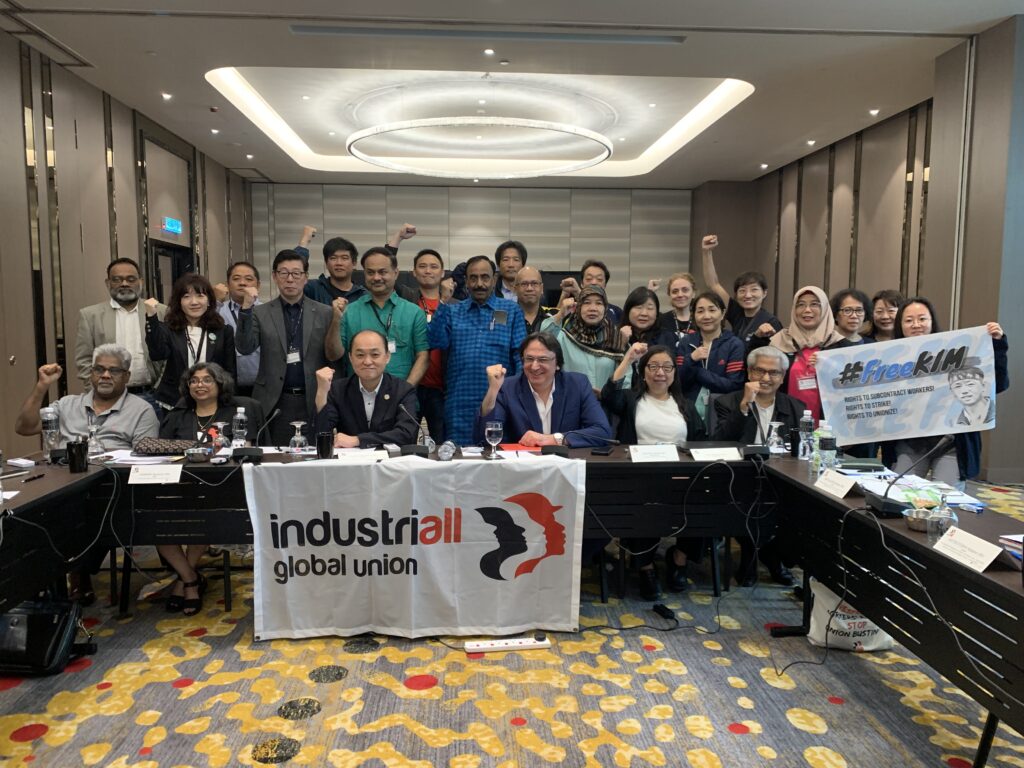Read this article in:
English
9 November, 2023IndustriALL Global Union Asia Pacific affiliates strategized actions to defend workers’ rights in free trade agreements, in a regional meeting held in Kuala Lumpur on 1 November.
Trade union leaders reaffirmed their commitment regarding the Action Plan which focuses on moving towards trade for the benefit of the people, which was adopted in the executive committee meeting in Mexico in 2018.
IndustriALL assistant general secretary Kemal Özkan said:
“We call on governments to return to multilateralism in negotiating trade, include enforceable labour rights, stop secret negotiations, and engage trade unions in discussion. It is crucial to increase the exchange of information and experience on trade among affiliates, to coordinate actions before ratification of trade agreements.”
During exchange sessions, participants discussed the latest developments of the regional and bilateral trade agreements, which will affect IndustriALL affiliates.
Good practices of safeguarding workers’ rights were identified. For example, forming alliances with other trade unions, peasant and civil society organizations, Continuous campaigning and building public pressure, mobilizing support of trade unions in other countries, leveraging the forum of international bodies.
The Asia Pacific affiliates are proposing the creation of a regional and global platform on trade and industrial policy to strengthen coordination and information exchange among affiliates and regional offices.
“Trade agreements must contain labour and environment provisions. The Japanese Council of Metal Workers (JCM) demands the government to make the Guidelines on Respecting Human Rights in Responsible Supply Chains mandatory. We also request the government to ratify the ILO Convention 111 on Discrimination and Convention 155 on Occupational Safety and Health,”
said Hideyuki Hirakawa, the JCM assistant general secretary.
“Australian trade agreements have worked to undermine labour standards. It waived the need for labour market testing before engaging temporary oversea workers and driving down wages and conditions in Australia. The Investor-State Dispute Settlement clauses also exposed the government to the risk of being sued. But the current federal labour government is taking a more considered approach to trade agreement negotiations,”
said Tony Maher, the general president of the Australian Mining and Energy Union (MEU).
“China cannot be kept out of our discussion on trade. For decades, China has been cultivated by the developed countries to crush the organized labour, now it is being held up. The trade union movement must think differently than governments. The global trading system must accommodate China in reasonable ways that benefit the working class. Like any war, trade wars are always at the cost of the working class,”
said Gautam Mody, the general secretary of New Trade Union Initiative (NTUI).
Thirty participants from Australia, Bangladesh, India, Indonesia, Japan, Korea, Malaysia, Pakistan, Philippines, Singapore and Taiwan joined the meeting in person and via Zoom.
